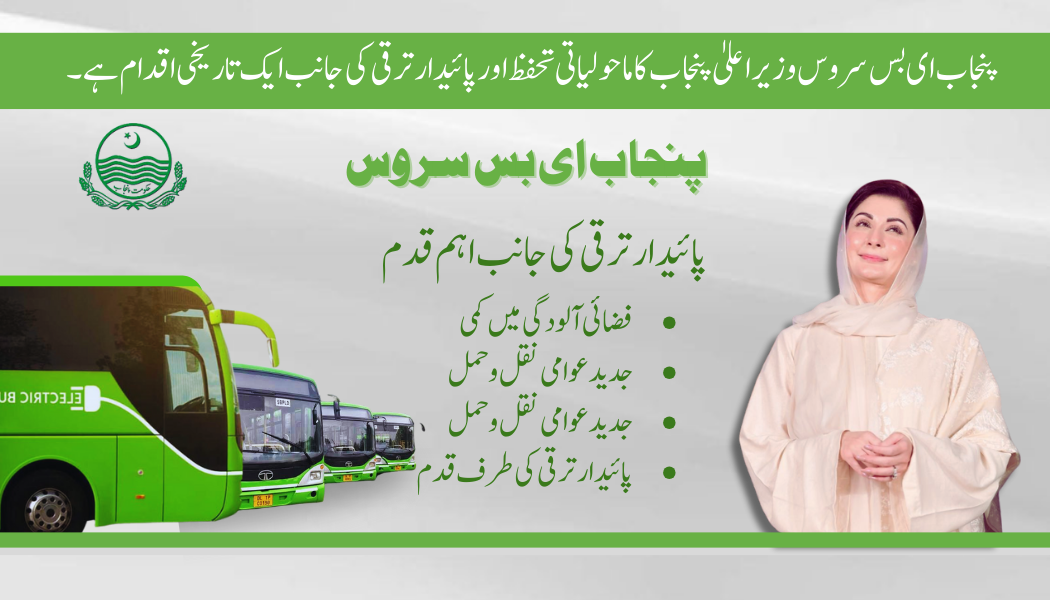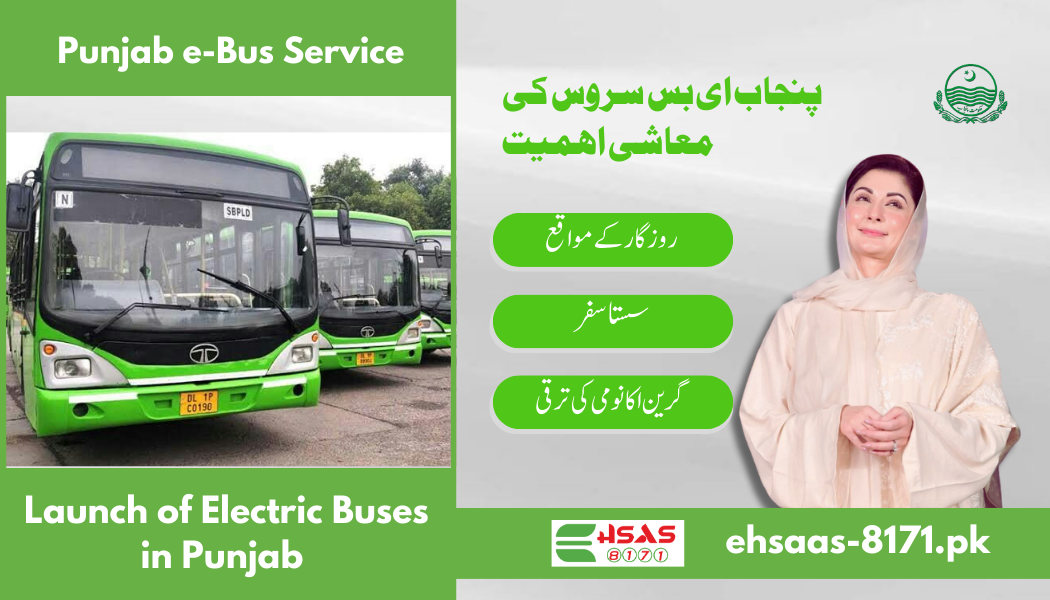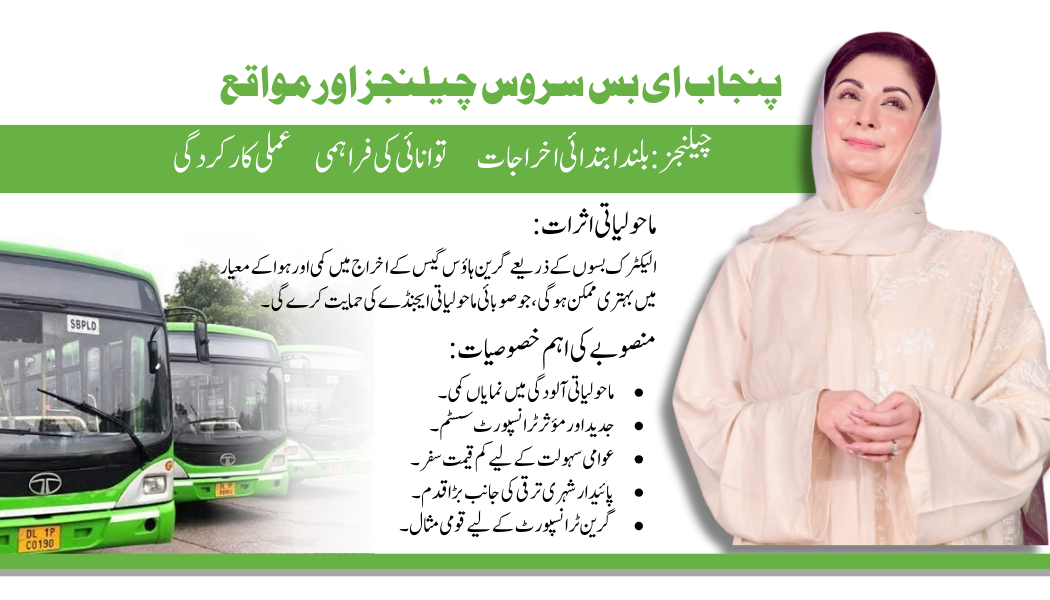CM Approves Punjab e-Bus Service in Punjab
Among the most recent exciting developments is the recently approved Punjab e-Bus Service which will revolutionize the availability of buses. This is not an innovative extension of the existing rapid transit system, but strategic plan, chiefly focused on preventing the further deterioration of environmental conditions, improving connection between communities, and to promoting sustainable development in the area. Below there is a brief of what the project is all about, it functions, importance and possible development for the future.
Background of Punjab e-Bus Service
The province of Punjab characterized by progressive towns and a burgeoning population has been experiencing growing traffic congestion, pollution, and inadequate and developing public transportation. However, the following challenges have compelled the provincial government of Punjab to approve the Punjab e-Bus Service. This service is as a result of the growing demand for a transport system that is friendly to the environment, convenient, and affordable for the people of Punjab.
Objectives of the Punjab e-Bus Service

The project is designed with clear objectives that align with both regional and global goals of urban sustainability and environmental conservation:
1.Reduce Air Pollution: This gave birth to the Punjab e-Bus Service which owns and operates electrically-run buses that promise to greatly reduce black carbon emissions, smoke from vehicle exhausts, and other pollutants to make Punjab’s skies cleaner and safer.
2.More Efficient Public Transport: New electric buses reported to be developed with features of modern technology are expected to increase the robustness of the urban transport systems.
3.Increase Accessible Public Transport: the service guarantee better connectivity within the urban regions hence improving the movement of people and transport within the region cutting across the demography of the society.
4.Advancement towards Sustainable Development: It aligns the project to the international goals of sustainable urbanism by lowering the consumption of carbon and promoting integration.
Project Overview of Punjab e-Bus Service

The Punjab e-Bus Service is set to roll out in multiple phases, ensuring gradual and effective implementation:
Phase One
In the first stage, e-buses will ply on certain corridors in the large cities including Lahore, Rawalpindi and Faisalabad. It will also prove or disprove the systems capability and efficiency for prospective expansions of the program.
Phase Two
Phase Two will see the expansion of routes and services to other cities and semi-urban areas, ensuring broader coverage and integration with existing public transport networks.
Infrastructure and Salient Features
The Punjab e-Bus Service stands out for its robust infrastructure and cutting-edge features designed to meet modern urban challenges:
Contemporary Vehicles
The fleet will consist of conventional electrical buses with attractive low floor, efficient engines, and other built-in safety options.
Infrastructures for Charging
Dedicated charging stations, strategically located at terminals and bus depots, will ensure seamless operations. These stations will utilize smart charging technology to optimize energy usage.
Smart Technology Integration
There will be GPS and track real time on each bus so sightseeing will also be there such as an electronic ticketing machine for the comfort and convenience of the passengers.
Terminals and Key Locations
Other main stops such as Thokar Niaz Baig will also act as depots where passengers are likely to spend time within specific lounges, buy tickets from self-service machines, and avail charging facilities.
Urban Integration
This new Punjab e-Bus Service shall harmonize with other current transport services which are sectional like metro lines and standard bus services.
Economic Significance of Punjab e-Bus Service

The project has substantial economic implications, including:
- Job Creation: From construction to operation, the e-Bus Service will create employment opportunities across various sectors.
- Cost-Effective Travel: With reduced reliance on fossil fuels, operational costs are expected to decrease, leading to affordable ticket prices for passengers.
Boost to Green Economy: The project underscores Punjab’s commitment to renewable energy and sustainable practices, attracting potential investments in green technologies.
Concerns and Responses
Public Acceptance
The introduction of a new system often faces skepticism. However, robust public awareness campaigns, demonstrations, and feedback channels will address concerns and enhance acceptance.
Future Development
The government plans to continuously upgrade the service by incorporating newer technologies, increasing the fleet size, and extending routes to rural areas.
Challenges and Considerations

Despite its promising outlook, the Punjab e-Bus Service must navigate various challenges, such as:
High Initial Costs: Infrastructure development and vehicle procurement require substantial investment.
Energy Supply: Ensuring a consistent supply of electricity for charging stations is critical.
Operational Efficiency: Training staff and maintaining the system’s efficiency will be essential.
Impact on Environmental Setup
Punjab e-Bus Service has electric vehicles that will considerably lessen green house gas emissions and lead to improvement of air quality. It also explored the extent to which this shift supports the provincial government’s environmental agenda and what effect it will have on others.
Punjab e-Bus Service Ticket Price
The Ministry of Communications has not disclosed concrete ticket that individuals will be charged with, but according to senior government officials, the service will be made accessible to the common man. Thus, subsidies and competitive pricing strategies will be used to thereby make the e-Bus Service affordable to the population.
Conclusion
The Punjab e-Bus Service is actually a giant leap towards a sustainable form of urban transport. Focusing on air pollution, traffic problems, and comfortable access to public transportation, this work will change the urban space in Punjab in the best way possible. In the light of these facts, with the efforts of continuous development, sound physical structure, and a supportive public, the Punjab e-Bus Service holds a great potential to serve as a successful referent for other green transport system services throughout the country.
FAQs
What is the Punjab e-Bus Service?
The Punjab e-Bus Service is an eco-friendly public transport initiative aimed at reducing air pollution and improving urban connectivity in Punjab.
When will the service start?
Phase One of the service is expected to launch in key cities within the next year.
What are the ticket prices?
Ticket prices will be competitively set to ensure affordability for all citizens.
How will the service reduce air pollution?
The service will use electric buses, which emit no exhaust gases, significantly reducing vehicular emissions.
